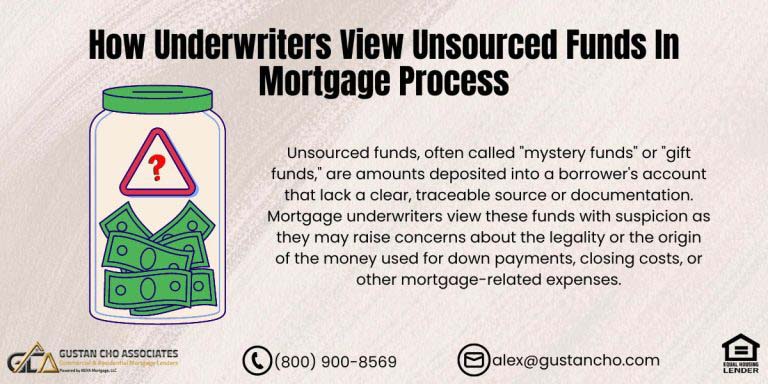This Article Is About Steps In Buying A House And Getting Qualified For A Mortgage
Buying a home can be one of the most exciting times in your life, but can also be a very stressful process. A home purchase is one’s biggest investment in a person’s lifetime. A Home Purchase is one of the biggest moments of one’s life. Preparing prior to deciding to go home shopping will make the process much easier and less stressful. There is more to just finding a realtor and finding a mortgage loan officer in buying a house.
Investment Benefits As A Homeowner
Purchasing a house is an investment in your future:
The home buying process does take much research and planning. There are many home buyers who are clueless and not prepared when buying a house. Eventually, end up giving up during the home buying process. We will cover the steps in buying a house on this blog. It will make the home buying process easier where buyers will understand from selecting a real estate agent to eventually closing on a home loan and getting the keys to their dream home.
Steps In Buying A House
Before making a decision in buying a house, think about whether you are ready to become a homeowner. Should consider the pros and cons of buying a home versus renting a home. Need to weigh in the responsibilities and commitment that come along with being a homeowner. Just because you have the financial means and the down payment and closing costs for a home purchase does not mean that you are ready to commit to being a homeowner.
Considerations Buying A House Versus Renting
Here are some thoughts you should think about when thinking of buying a house:
Are you mentally and physically ready to make a change from being a renter to being a homeowner? Are you able to handle the maintenance of a home that you will be responsible for with being a homeowner? Can you comfortably afford the monthly mortgage payments and housing expenses?
Added expenses are the following:
- such as property taxes
- homeowners insurance
- homeowners association fees that come along with being a homeowner
Qualifying For A Mortgage
Do I meet the minimum credit requirements and income requirements to qualify for a home loan?
Are you ready to stay in one place for the next three to five years? One advantage of being a renter versus a homeowner is that you do not have to commit to a particular place for an extended period of time whereas a homeowner. Homeowners cannot plan on moving every year. Do you know what you are looking for in a home?
Financial Considerations In Buying Versus Renting
Are you ready to commit to saving for reserves in the event of potential repairs on your new home purchase? Homeowners need to realize they cannot just call their landlord if the kitchen sink or toilet is not working or if your furnace needs major repairs. Homeowners are responsible for all maintenance and repairs to their homes. Consider the neighborhood you want to settle in for the next three to five years, besides the size of the home, the number of bedrooms, the yard size, the square footage. Consider the type of home you want to buy. Is it a condominium? Is it a townhouse? Is it a single-family home with a large yard? Is it acreage?
Remember that if a home sits on many acres, there is maintenance that to consider. I live on 6 plus acres and it takes me literally more than a day to mow my yard with a riding tractor plus over 5 gallons of fuel. On weather where it rains often, you may need to mow more than once a week. It is extremely time-consuming. Can be costly not just with fuel, but the maintenance of riding a tractor. After evaluating the situation and weighing the pros and cons of buying a home versus renting and decided to become a homeowner, then it is now time to move to the next steps in buying a house.
Steps In Buying A House And Finding The Right Lender
Not All Lenders Have Same Mortgage Guidelines
Most borrowers who get referrals of mortgage loan officers from family and friends will also Google that particular loan officer online and check on their testimonials and reviews online. The Internet can be both great tool and yet a dangerous one for loan officers. The loan officer should realize that it is difficult to get a positive review from borrowers. However, poor reviews are really easy to get and one negative review by an unhappy borrower can spread like wildfire and ruin one’s reputation. It is extremely important that the loan officer makes sure that every mortgage loan applicant gets treated with the utmost respect and get the service they deserve.
Steps In Buying A House And Getting Pre-Approved
Once you have selected which mortgage lender to use, the next step is getting pre-approved. In order for a mortgage loan officer to issue a pre-approval letter, they need to run your credit. The pre-approval stage of the mortgage process is the most important part of the whole mortgage approval process. The main reason for last-minute mortgage loan denials or extreme stress during the mortgage process is because the mortgage loan originator has not done his or her due diligence prior to issuing the pre-approval letter.
Items And Tasks Required Prior To Pre-Approval
Here is the list of items that the mortgage loan officer will need from you and review prior to issuing a solid pre-approval letter:
Your mortgage loan officer will need to pull your credit. The loan officer needs to thoroughly review not just your credit scores, but your overall credit report. The loan officer needs to look at your payment history as well as your prior derogatory. The loan officer needs to be aware of the public records. They need to see if you meet the waiting periods after bankruptcy and foreclosure. They need to make sure that all government loans are current and not in collections (The credit bureaus are the bureaus of Experian, Equifax, or TransUnion).
Your income tax returns from the last two years will need to be provided and reviewed by your mortgage loan officer. Proof of employment for the past two years. Paycheck Stubs from the past 30 days and W2 Forms from the past two years. Two or more forms of Identification of the borrower and/or borrowers such as borrowers driver’s license, social security card, passport, or other forms of valid identification cards. Current bank statements for the past 60 days. Proof of extra income, such as child support income, alimony income, part-time income, social security income, pension income, bonus income.
Steps In Buying A House And Hiring A Real Estate Agent
Once buyers are armed with a solid pre-approval letter by a mortgage loan officer, the next step in buying a house is hiring a real estate agent. Finding a real estate agent that buyers feel comfortable with and can get along with is as important as finding the right mortgage loan originator. Many times home buyers will get referrals from friends and family or search online and read the testimonials and reviews of the real estate agent.
Expert Real Estate Agent With Experience
When choosing a real estate agent, buyers should select a real estate agent who is local and has experience in the neighborhoods and locations they are shopping to purchase a home:
- Realtors should have stellar reviews and testimonials.
- There are so many professional real estate agents that I know of who really go above and beyond for their home buyers and home sellers and put their clients ahead of themselves.
Contact us at Gustan Cho Associates at 800-900-8569 or text for a faster response. Or email us at gcho@gustancho.com if looking for a phenomenal real estate agent. Homebuyers are not obligated to hire a real estate agent and can change real estate agents during the home buying process. Once buyers have hired a realtor and are armed with a solid pre-approval letter, they can now start shopping for a home and enter into a real estate purchase contract.
Steps In Buying A House And Searching For Dream House
Your real estate agent will most likely email you homes that fit your needs in the right neighborhood. There are many open houses on weekends where it is highly recommended that you attend. Just because the pictures look good does not necessarily mean that the home and its surroundings are going to suit your needs.
Never purchase a home via site unseen. You will regret it even if it is an investment property or a second home. Always visit multiple homes and refrain from entering into a real estate purchase contract on the first home you see. After visiting multiple homes, buyers will eventually find the home of their dreams and can enter into a real estate purchase contract.
Steps In Buying A House And Putting In An Offer
Buyers will always want to make a reasonable offer on a home. Low balling a home seller is not recommended and most low ball offers will not even get a counteroffer. Make sure to ask for a seller’s concession. This way buyers do not have to come up with any closing costs. All buyers have to worry about is the down payment on a home purchase. Make sure to have an attorney thoroughly review the real estate purchase contract.
In states where they do not use a real estate attorney, make sure to read all of the line items of the real estate purchase contract. Make sure to add the contingencies such as appraisal contingencies, home inspection contingencies, and most importantly, financing contingencies on the real estate purchase contract. Once you have an executed real estate purchase contract from the home seller, turn it into your mortgage lender so they can start the mortgage approval process.
Steps In Buying A House And Homeowners Insurance
All lenders will require that you have sufficient homeowners insurance coverage. One year’s homeowners’ insurance will need to be paid at closing. The minute you have an executed home purchase contract, start shopping for homeowners insurance. Homeowner’s insurance premiums can vary. Make sure to get multiple quotes. Compare apples to apples and get the best bang for the buck. A real estate agent and/or mortgage loan officer can give several names of a homeowners insurance agent. Or can check with current auto insurance or other insurance providers for a quote.
Steps In Buying A House And Ordering Home Inspection
Mortgage lenders do not require that a home inspection be done. Home inspections are totally optional. Most home inspection fees may vary from $200 to $500. Many home buyers want to save the home inspection fees and decided not to get a home inspection. A home inspection is highly recommended, especially in older homes. Unless buyers are extremely knowledgeable in home construction and repairs or have friends or family, they can trust that can inspect the home, a home inspection is an insurance policy that is worth its weight in gold. A home appraisal is required by all lenders. However, a home appraiser is not a home inspection and is far from it. A home appraiser will note obvious defects but will not thoroughly inspect all aspects of the home.
Steps In Buying A House And Going Through Mortgage Approval Process
The mortgage process is a true process where it can become stressful at times.
Once the real estate purchase contract is submitted to the mortgage loan officer, the loan officer will ask to provide updated documents such as the following:
- updated 60 days bank statements
- updated paycheck stubs
- will ask about any other changes in credit, income, and employment profile
The Role Of The Mortgage Processor
A mortgage processor will be assigned to the mortgage file:
The mortgage processor will be in contact with borrowers for any documents that he or she will require. The mortgage processor’s main job is to make sure that the file is ready and in a ready format for the mortgage underwriter. Once the underwriter gets assigned file, the mortgage underwriter will underwrite the mortgage loan application and issue a mortgage loan approval with as few conditions as possible.
Conditional Loan Approval
Once the mortgage processor submits the file to the underwriting department of the lender, a mortgage underwriter will be assigned to your mortgage file. A typical underwriting turnaround time is around 48 hours for an underwriter to underwrite a loan application and issue a conditional approval. Once conditional loan approval is issued, the file goes back to the mortgage processor. It is the mortgage processor’s job to work with the loan officer in getting the conditions requested by the underwriter.
Getting Clear To Close
Once all conditions have been provided to the processor, the processor will submit the file for a clear to close. Once a file is submitted for a clear to close, the underwriter will check off on all conditions and may issue a clear to close. Or may come up with additional conditions where it goes back to the processor to repeat the process again. Normally, a competent experienced underwriter will not request more conditions after the first initial conditional loan approval. However, I have seen many times where an incompetent mortgage underwriter will issue additional conditions over and over where it drives everybody nuts.
Arranging Closing Date And Mortgage Closing
Once a clear to close is issued, that means the lender is ready to fund the home loan. The closing department of the mortgage company will coordinate the closing with the title company. Closing docs will be sent out to the title company. The wire will be sent out to the company as well. The home buyer, as well as the home seller, will meet at the title company to sign off on the home closing. The home seller will get the proceeds from the sale of their home and the home buyer will get the keys to their new home purchase.











